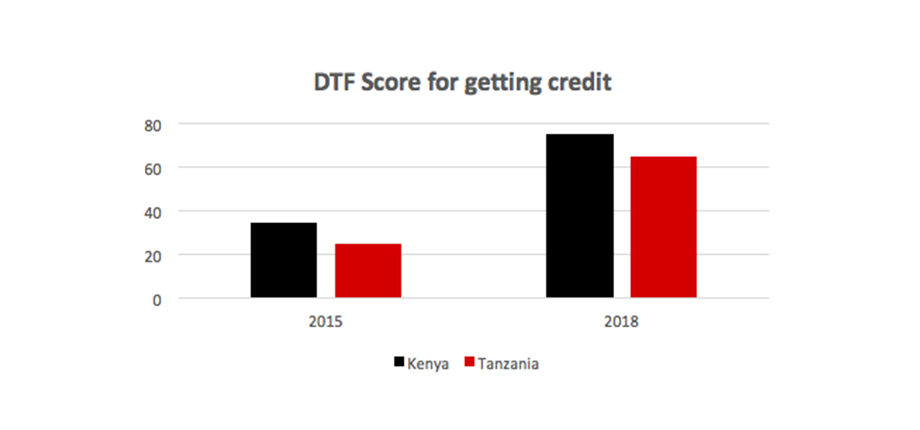Proof that Credit Bureaus Improve Countries’ Distance to Frontier Score for Getting Credit
Within the Credit Bureau industry, we often talk about better financial inclusion and ways to facilitate access to finance, especially in light of the 2 billion “unbanked” population – a number reported in the Worldwide Findex Database by the World Bank and escalated by many industry players.
It takes time to report some tangible results, and time has shown, to the benefit of Creditinfo, that in the emerging markets, where the company opened credit bureaus a couple of years back, an impressive increase of the Distance To Frontier Score for Getting Credit (or DTF score for getting credit), calculated in the DoingBusiness report by the WorldBank, was observed. The DTF score mirrors financial inclusion and here are some hard facts:
- Guyana’s DTF score for getting credit jumped more than 3 times during the last few years, since the opening of a Creditinfo credit bureau. From 15 to 50 to be exact.
- Kenya’s score increased more than twice, from 35 to 75 since 2015, the year when a Creditinfo credit bureau was opened there.
- A very similar situation in Tanzania, with a positive change in the DTF score during the last three years – from 25 to 65.
Creditinfo Kenya, Creditinfo Tanzania, Creditinfo Guyana and other companies were obviously instrumental in increasing this score, which is one of the most objective ratios of financial inclusion and we consider it as proof that credit bureaus are a key element to better financial inclusion.
This claim sounds self-evident for us, industry players, but sometimes it is worth to stop for a second and take the time to reflect back, in order to evaluate actual progress on country level. We think big and long term, therefore the way and the speed at which the emerging markets having a credit bureau advance forward in terms of financial inclusion is encouraging and inspiring. Looking forward to better times ahead, while enabling access to finance with Creditinfo.
Don’t hesitate to contact us for more detailed information, statistics, analysis or benchmarking reports!





